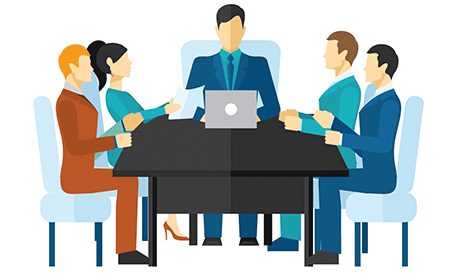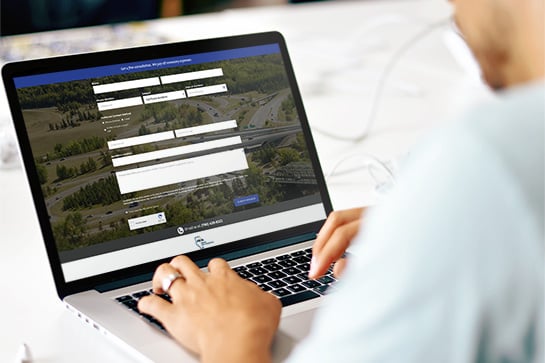
In Alberta, part of the litigation process includes a procedure referred to as Questioning. In other Canadian jurisdictions it is commonly referred to as an “Examination for Discovery” and in the US it’s called a Deposition. The process is intended to help the lawyers involved in an injury claim to learn all the relevant details of the claim being made. The goal is to allow them to assess the strengths and weaknesses of their cases. Alongside confirming the facts that will be relied on at trial, the process also helps to narrows the issues in the dispute. Sometimes those issues will involve who is liable (at fault) for the accident while in other cases the dispute may be over the amount of damages that are payable to compensate the Plaintiff for his or her injuries.
We believe the more prepared you are for Questioning, the more confident you will be in yourself and your case. Don’t worry though, your lawyer will always take the time to personally brief you ahead of Questioning, so you feel confident and prepared for the questions you will likely face.
Below you will find answers to the questions we frequently are asked about the Questioning process and some important things to remember throughout the proceeding. CAM LLP specializes in acting solely on behalf of the Plaintiff in personal injury cases, and the information outlined below will explain the Questioning process from the position of the Plaintiff.
Why Am I Being Questioned?
Questioning essentially gives the opposing party the opportunity to find out what you have to say about the matters associated with the lawsuit. The lawyer doing the Questioning will try and see if there are areas of agreement between parties involved in the lawsuit, but will also attempt to obtain admissions that may be used against you if the matter moves to trial. However, Questioning can also result in a settlement negotiation, because the procedure gives both parties the opportunity to review the strengths and weaknesses of the case.
What Format Can I Expect?
This is an oral examination, and you will be questioned under oath. It is not a trial, but part of the pre-trial process. So, while a judge will not be present, a court reporter will record the questions and your answers.
Where Will I Be Questioned?
Questioning will take place at our office, the office of the opposing party, or at the offices of a court reporter. Your lawyer will advise you of where and when you are to attend.
What Kinds of Questions Will They Ask?
The opposing counsel will ask you any and all questions relevant to the case. Questioning is not intended to test your memory, but it is good practice to review materials like affidavits, police and ambulance reports, other documents, and timelines relevant to your case. For example, if your accident occurred several years ago, we would recommend refreshing your memory of the day by reviewing documentary evidence and the chronological events leading up to the incident.
Your lawyer will help you prepare for Questioning, but also support you during the proceedings. If the opposing lawyer asks an improper question, your lawyer will object to the question or instruct you not to answer the question. If your lawyer objects, stop talking, even if you are in the middle of a sentence.
In personal injury claims, as a Plaintiff, you will usually be asked things like:
- How the accident occured
- Your health before and after the accident
- Your employment and educational history, and
- Anything else relevant to the claim, e.g., time off work, efforts you have made in your recovery, information about healthcare providers involved in developing and monitoring your treatment plan.
Tips for the Questioning Proceeding
We will meet with you at length to fully explain the process and to outline for you the type of questions that the other lawyer is likely to ask. Here are some important things to remember as you prepare for Questioning:
Tell the Truth and be Accurate
This is the most important tip we can give you. You will be under oath and must answer questions truthfully. Don’t lie about something the might not support your case, don’t exaggerate and don’t guess. If you do not appear forthright and honest in your answers you run the risk of giving the other side ammunition to damage your credibility which can ultimately harm your goal in obtaining compensation. As humans we are conditioned to try to respond to questions, but if you’re unsure of the answer to a question, simply ask the lawyer to clarify or say “I do not know.”
Remember, your questioning transcript can be used by the other party in their submission to the court. If your answers are seen as untruthful, or unreliable this can impact whether the court accepts your evidence.
Stay Focused on the Question
Wait for the lawyer to finish asking the full question before you answer. And, only answer the specific question you are asked. If you over-explain or elaborate on an answer, this can serve as an education to your opponent or lead to further questioning. We recommend only answering with “yes” or “no” when possible. If the questioning lawyer is looking for more information, they will ask you to elaborate or provide more detail, and we will advise when it is unnecessary to answer.
Remain Calm
It’s completely normal to be nervous or emotional during Questioning. However, we will ensure that you are prepared and will be there supporting you throughout the proceedings. If the other lawyer becomes overly aggressive or asks improper questions, we will step in to protect you.
You may also be asked leading questions that may frustrate you, but it will not help your case to get angry. If your judgment is clouded, you will answer questions emotionally. We generally find that you will find a better result if you’re honest and polite. If you find yourself getting angry or upset, it is ok to ask for a short break to give you time to compose yourself.
Take Your Time
It’s important to take the time to think about the question before you provide your answer. Take the time you need to collect your thoughts before you answer. Taking your time also ensures that you’re answering only what is being asked, and not giving the opposing party any more information than is needed.
What happens after Questioning?
Your lawyer will debrief you after your Questioning to discuss any issues that have come up that need to be addressed. Sometimes you may be asked to provide additional information if you cannot answer a question that you should be able to answer. Sometimes the Questioning may reveal a weakness in your case that your lawyer did not know about, so it will be necessary to discuss what that means for your case strategy.
